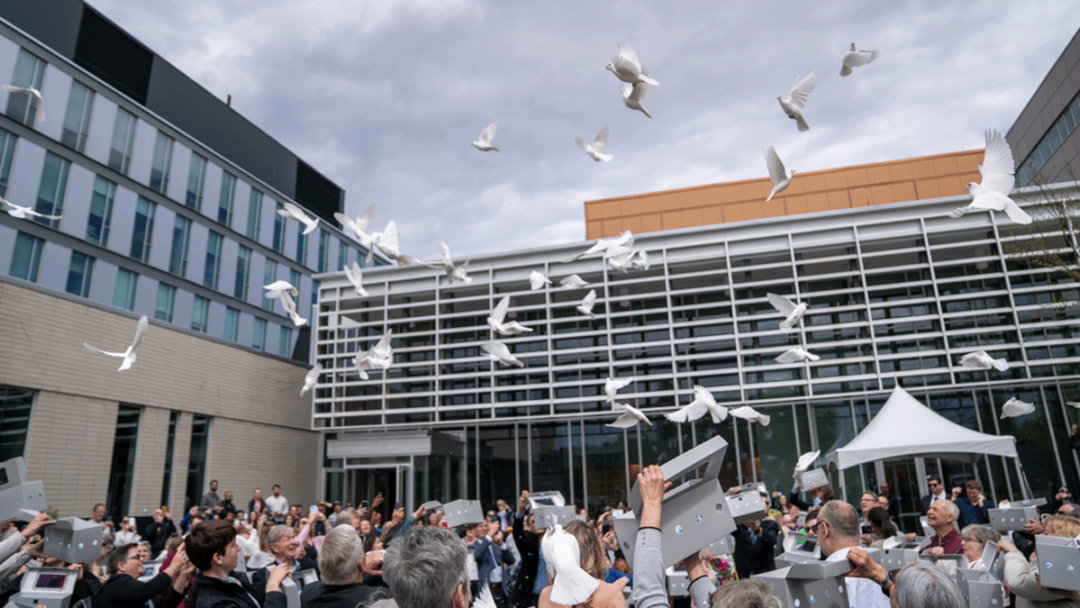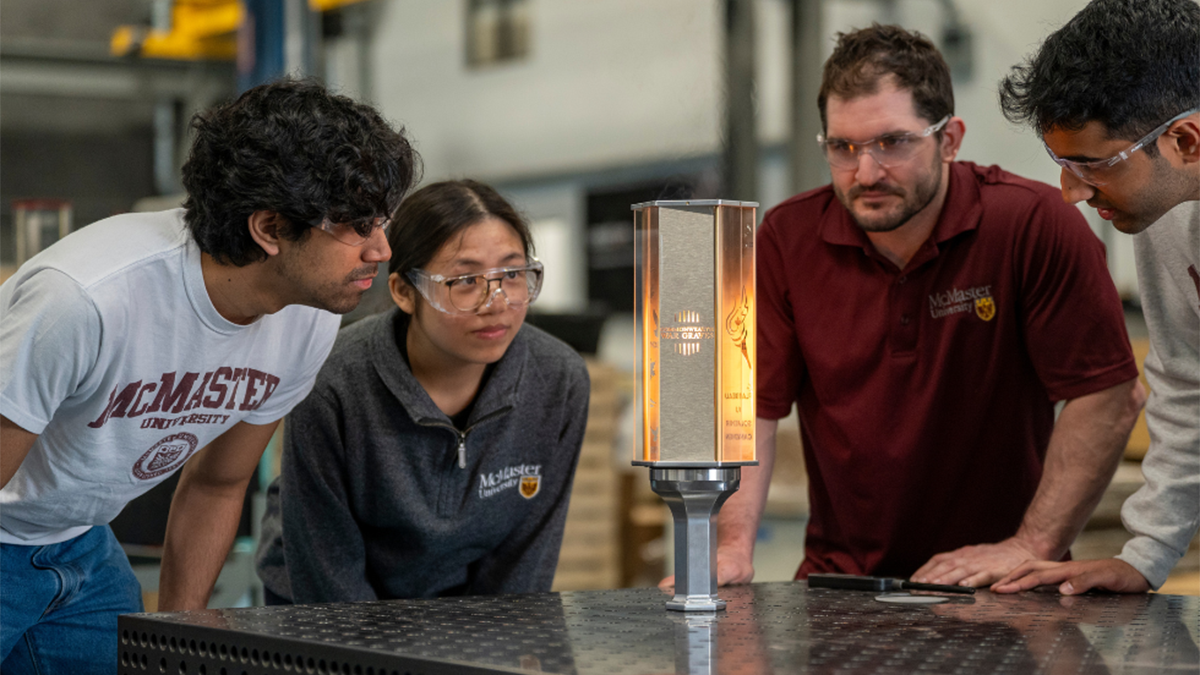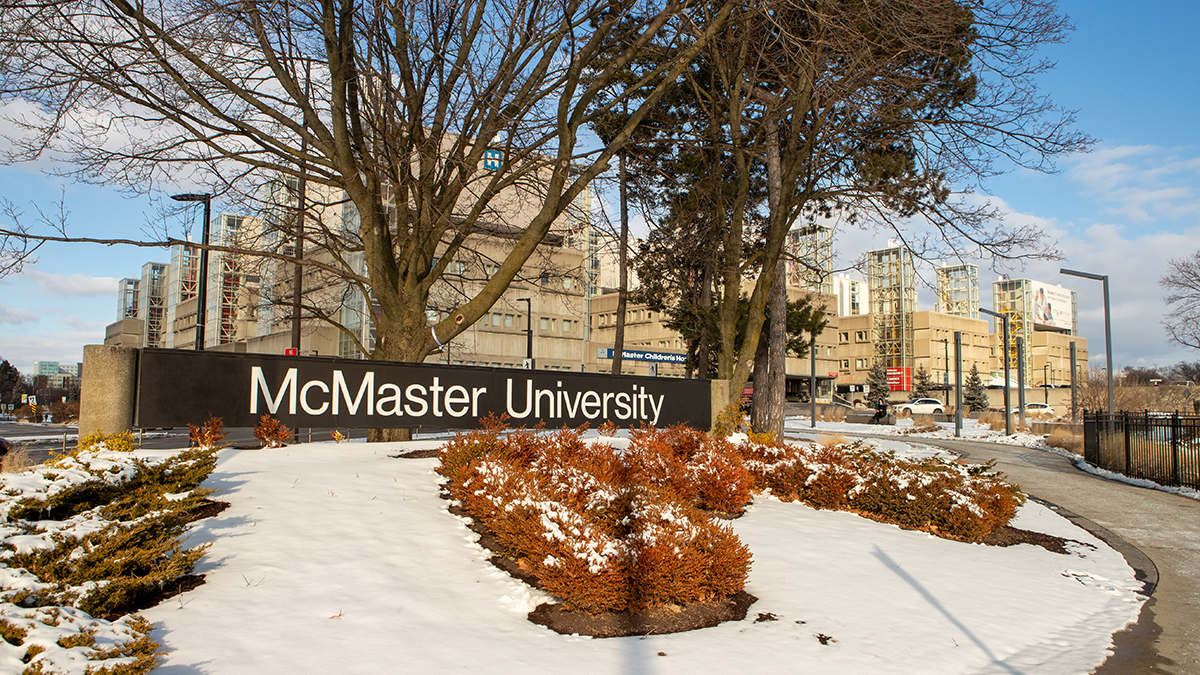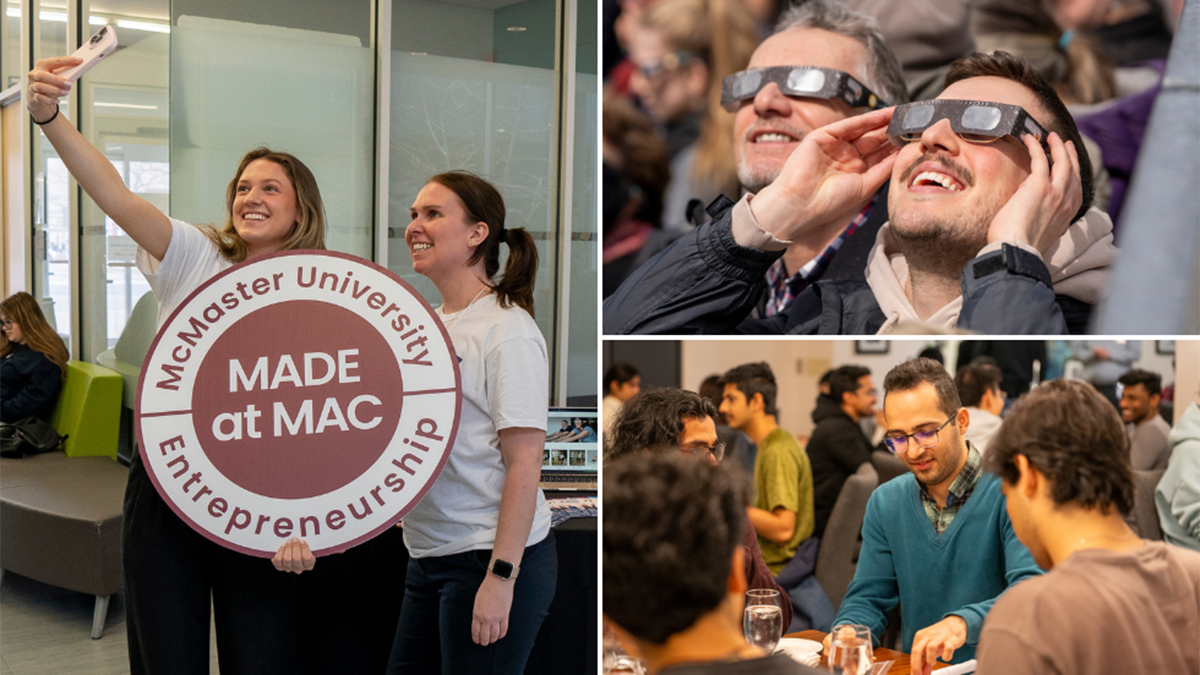‘Immensely grateful’: Service of gratitude honours those who donated their bodies to teaching

Every year, families, friends, educators, and students gather for a heartfelt ceremony at McMaster University to recognize the donors who gave all that they are in a final act of kindness to further medical research and training.
The melancholy sounds of a pipe band led the service as, one by one, speakers took the stage in a service of gratitude that honours all those who donated their bodies in the past year. Each speech delivered a beautiful recognition of how each persons’ final act of altruism has impacted the lives of educators, staff, and students.
“The donations have a profound impact on our students’ education. The gratitude we feel towards the donors is immense, as their contributions are essential to our teaching,” says Bruce Wainman, a professor with the Department of Pathology and Molecular Medicine.
Since 2005, Wainman has been the director of the education program in Anatomy and director of the surgical skills laboratory. He knows more than most how impactful these donations are to the education of future medical students, and why these celebrations are just as important.
“The value of hands-on learning cannot be overstated. It’s one thing to read about anatomy in a textbook, but it’s another to see and touch the structures in a real body,” Wainman says. “That’s why we are immensely grateful to the individuals and families who make the decision to donate their bodies. Their generosity is at the heart of our educational programs.”
For the past nine years, Maureen Letang has worked alongside Wainman in coordinating the service. She works intimately with the families of donors as a bequeathal coordinator, assisting them with the donation process and with services like those offered at a funeral home.
“I share a very intimate time with the family when they’re grieving. I ask the family about the person’s life and they’re very motivated to talk and share stories about the person that they’ve just lost,” she says.
Under her guidance, the service has grown to include features like the Hamilton Police Pipe Band and a dove release, where a member from each donor family gets to be involved.
Profound impact on students and families
The service of gratitude is an important aspect of the training students receive at McMaster University. As Wainman puts it, the donors, in many ways, are the first patients medical students interact with.
“Through the service, we can feel better for having discharged at least some of the debt of gratitude we feel towards those families and the students finally feel like they’re integrated into this community, and with this person who is, in some ways, their first patient,” he says.
Similarly, Letang refers to donors as teachers, an appropriate title considering the education and unmatched training they provide to students.
“When I’m speaking with families and the donor is set to retire, I’ll say, your loved one has concluded teaching, or if still active, your loved one is teaching. It’s an acknowledgement of everything the donor is doing.”
The event is also an opportunity for families who have spent months and weeks grieving the loss of their loved ones, to meet the people who are learning from these donations.
“That’s the miracle of the service. The families, even though they’re probably feeling anxious and worried, meet the learners and discover what they’ve been up to. Everyone comes out feeling better,” says Wainman.
Learn more about McMaster’s Bequeathal Program.
Anatomy Education Program, Community & Culture, Dept. Pathology & Molecular MedicineRelated News
News Listing

6 days ago

Faculty of Health Sciences 2024: Stories that resonated
Community & Culture, Feature
December 9, 2024

